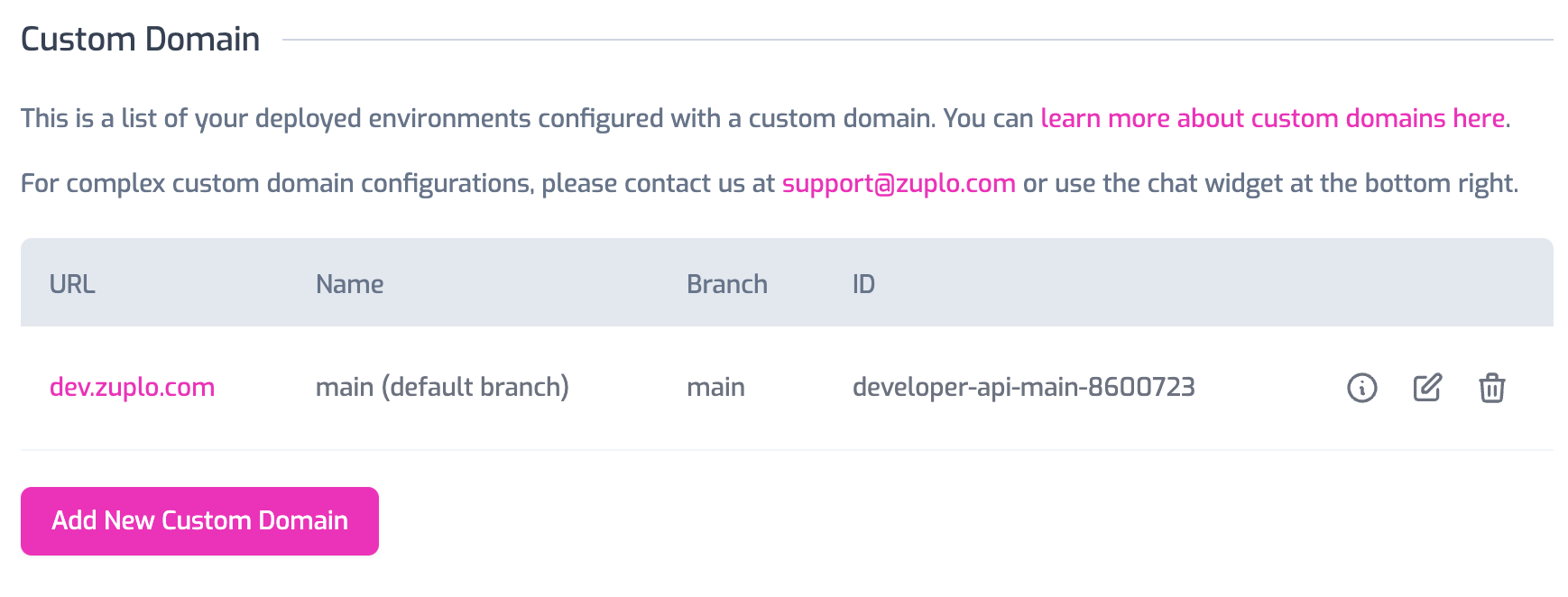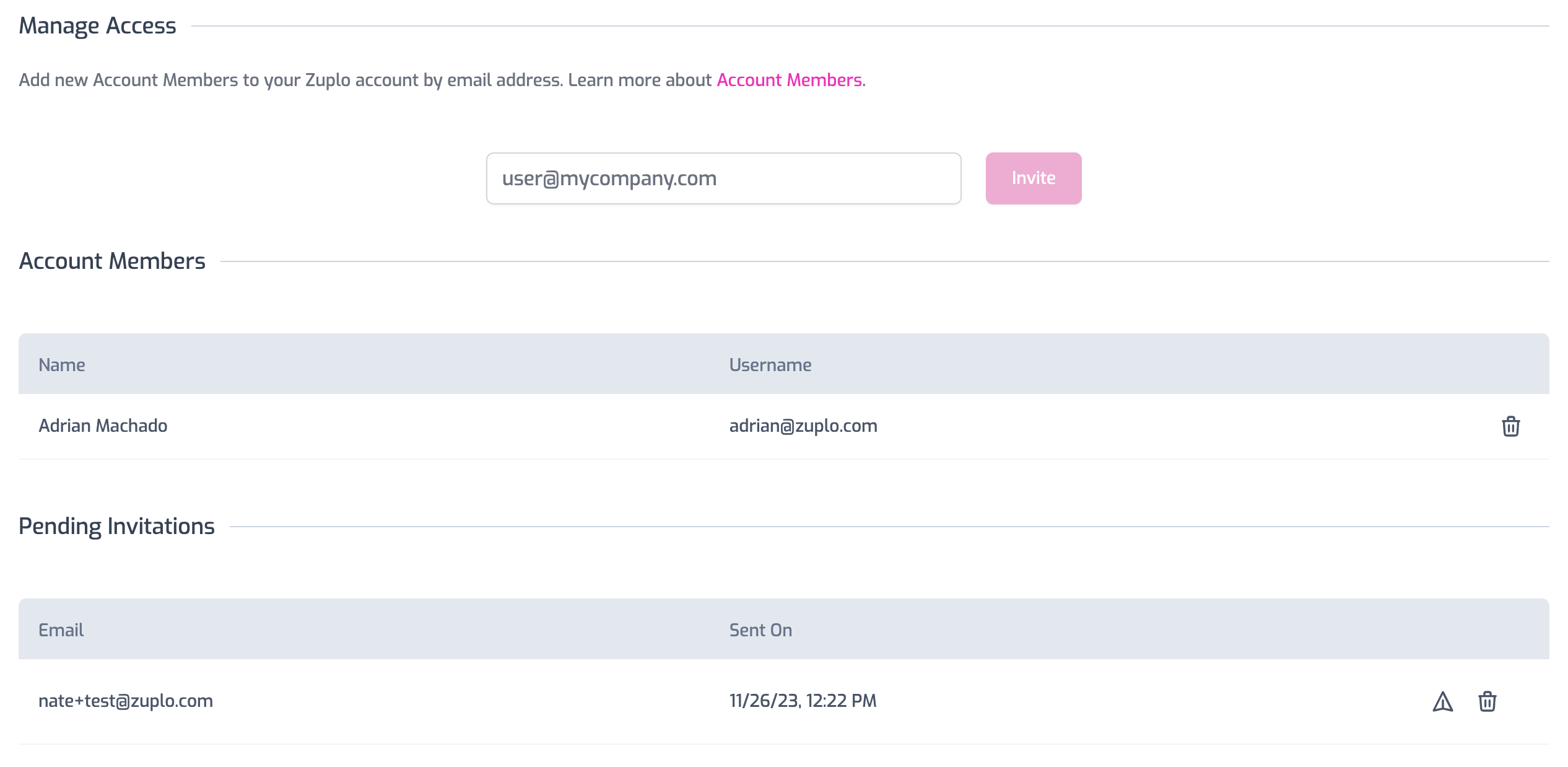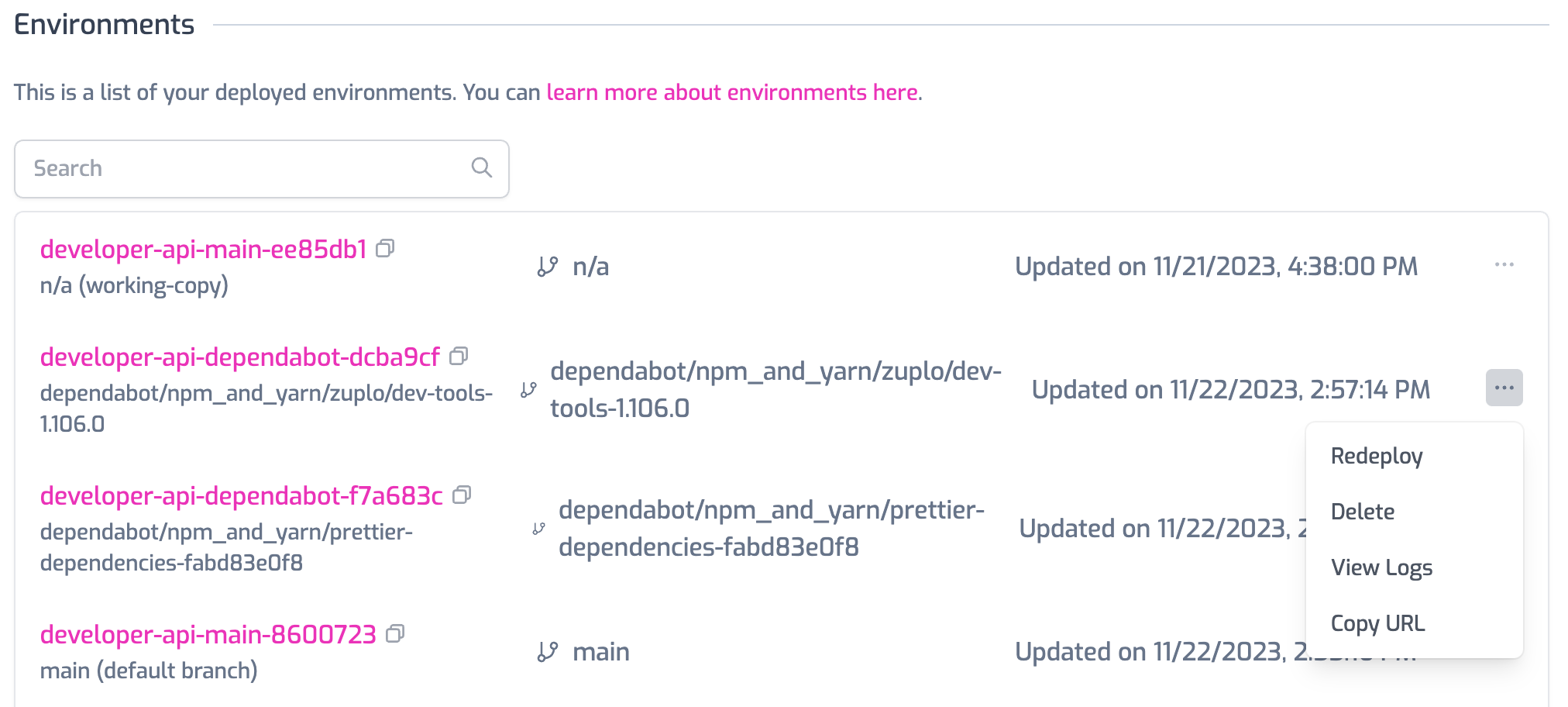Zuplo Changelog
We release improvements, new features, and fixes daily. Follow along here to see the most important updates.
Better Local Dev Errors
When your API throws an error in local development, you will now see a formatted output that includes the error message and stack trace in a more readable format. This will help you quickly identify the issue and debug your application.

Local Development Log Enhancements
We have overhauled the local development logs to provide a cleaner and more useful output. The new logs make it easier to see the HTTP method, route, and status code for each request. This will help you quickly identify issues and debug your application.
The logs are now color-coded to make it easier to distinguish between different HTTP methods and errors are highlighted in red. Additionally, the logs are now formatted in a more readable way, making it easier to scan through the output.

Create Zuplo API Improvements
We have made a number of improvements to the create-zuplo-api package to make
it even easier to start a Zuplo API project locally. The updated package
includes the following enhancements:
- Option to include ESLint and Prettier configuration files in the project
- Improved error handling and messaging
- Automatically installing dependencies after project creation

Unified Dev and Production Environments
Previously, Zuplo maintained separate infrastructures for development environments (working copy) and production APIs. We have now migrated to a unified infrastructure, where development environments use the same environments as production APIs.
-
Consistency: Development environments are now exactly the same as production and preview environments. This ensures that the behavior in development matches that in production, reducing the likelihood of unexpected issues after deployment.
-
Global Reach: Development environments are now deployed to over 300 edge locations. This allows developers to test their changes in an environment that closely mimics the distributed nature of our production infrastructure.
-
Scalability: Development environments are now fully scalable. This means that they can handle increased load when necessary, providing a more accurate representation of production performance.
-
Deployment Time: The trade-off for these benefits is a slightly longer deployment time. However, we are actively working on optimizing our deployment processes to reduce this time.
We believe that the benefits of this change significantly outweigh the trade-offs, and we are excited to see how it improves our development process moving forward.
New Self-Serve Capabilities
Custom Domains#
Custom Domains can now be fully managed from the Zuplo Portal on all accounts types that support custom domains.

Account + Project Users#
All aspects of managing account and project members can be performed from the developer portal. Additionally, you can now see who has been invited, but not yet accepted their invitations.

Environment Management#
Environments can now be redeployed or deleted through the Zuplo Portal. Redeploying is useful when you want to change the environment variables without editing code of a source-driven environment.

Custom Logging Additional Log Fields
Logging plugins now include several new fields to help filter logs for different environment types:
The names of these fields may differ depending on your logger as we follow the
conventions of each log service. So environmentType may be environmentType,
environment_type, or environment-type.
environment: This is the name of your Zuplo environment. This will be the same as your Zuplo subdomain. i.e. if your Zuplo URL ishttps://silver-lemming-main-b0cef33.zuplo.app, the environment issilver-lemming-main-b0cef33environmentType: This indicates where your environment is running. Possible values are:edge: Environments deployed to our 300+ edge locationsworking-copy: Environments deployed to your single-instance dev serverlocal: When running with Zuplo local development
environmentStage: This indicates the deployment stage of your environment. Possible values are:production: Environments deployed from your default git branchpreview: Environments deployed from any other git branchworking-copy: Environments deployed to your single-instance dev serverlocal: When running with Zuplo local development


